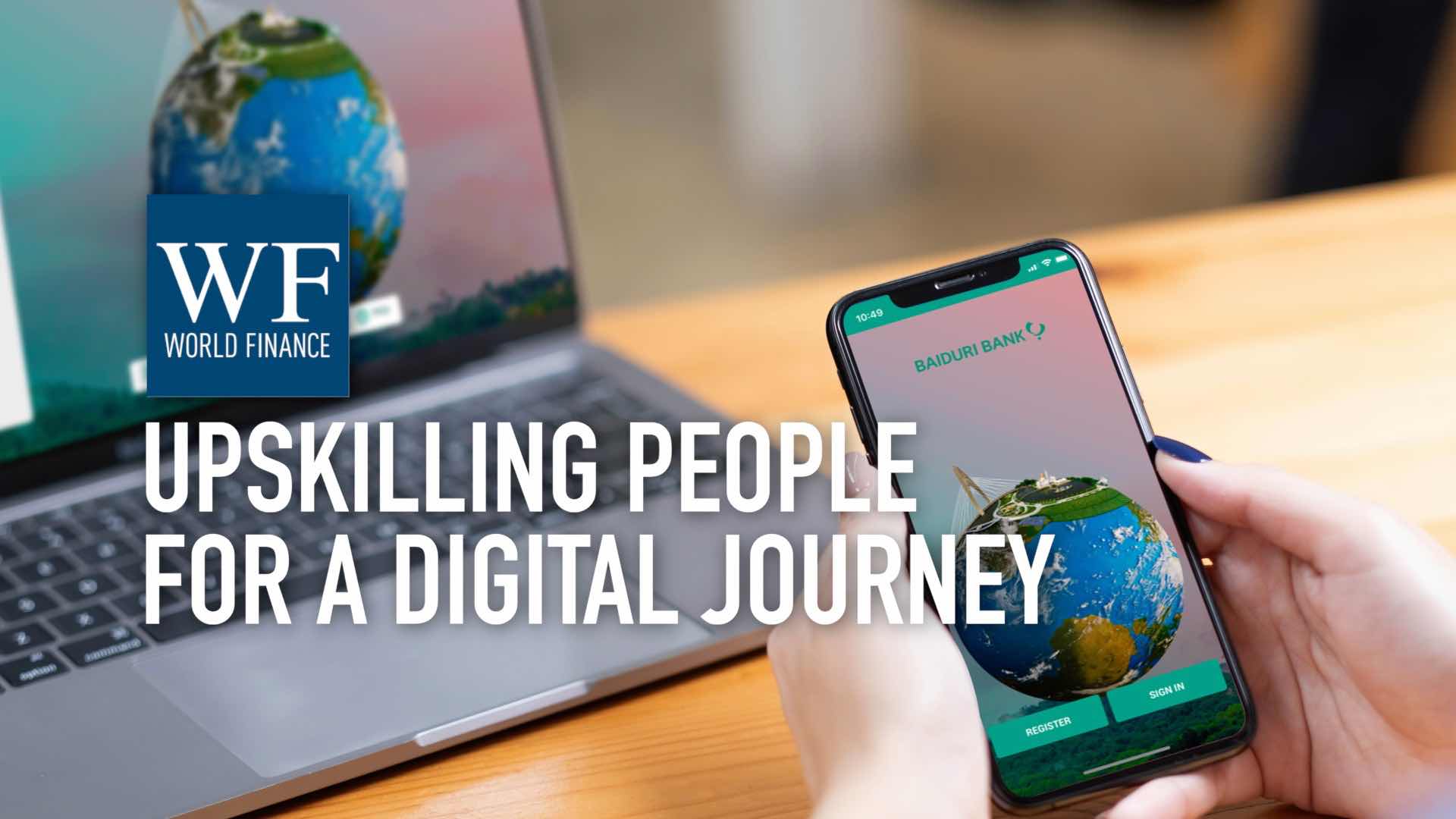More digitisation, at a faster pace: How Baiduri Bank responded to COVID-19
'Digitisation is the way to go, online is the way to go,' says CEO Ti Eng Hui: 'We see the need to do even more, just to make sure that we are one step ahead.'
Related:
Transcript
One year after Ti Eng Hui was appointed CEO of Baiduri Bank, the first Bruneian started experiencing symptoms of COVID-19 – and the world turned upside-down. Six months into the global crisis, Ti discusses how Bruniean people and businesses have been affected, how the financial services industry responded, and how Baiduri Bank’s commitment to ongoing investments in technology and staff training payed dividends this year.
World Finance: Mr Ti, what has life been like for your customers since March? What new financial challenges are they facing, and how is Baiduri Bank supporting them?
Ti Eng Hui: So, COVID-19 has affected Brunei, like other countries. And the industries affected very much are the tourism industry: the airlines and the hotels.
So working together with my colleagues in the Brunei Association of Banks, together with the regulators MBD and also the Ministry of Finance, in early April we rolled out a financial relief package for those companies – businesses and individuals – affected by the COVID-19 situation, where their loan repayments can be deferred until next year for a period of 12 months maximum.
So that has really helped in terms of the financial stress that they’re facing. So yeah, that’s what we did at the beginning, very quickly.
World Finance: And how has Baiduri Bank had to adapt to this extraordinary year?
Ti Eng Hui: So what we’ve done is that we need to make sure that the staff are comfortable coming into work at the bank. So what we’ve done is we activated our business continuity plan, like other banks.
At the same time we need to make sure that staff who need to work in the head office can come in, feel safe to work. So we have done a lot of sanitisation, cleaning, giving them a lot of support in terms of the health packages to strengthen their immunity. Practise social distancing among the staff.
Secondly what we’ve done for those customers who need to come to the bank: we need to do all the scanning, the social distancing, just to make sure that when they come in they see a space that they are comfortable to come in. Obviously we encourage them to go digital. We launched a new mobile banking service in March. So that new channel has really, really helped us, in terms of diverting the traffic away from the branch network.
World Finance: When we talked last year, you spoke about the importance of ongoing investments into technology and into staff training; I suppose this year really has just highlighted the importance of those investments?
Ti Eng Hui: Yes, definitely. You know, our online transactions now account for more than 90 percent of overall banking transactions. And we continue to see that number climbing.
What we also see is that there’s a lot of online payments being made – those we see tremendous growth throughout COVID-19 and also now. So I think the digitisation has really gone a lot faster than before. And we have also rolled out internally more online training for our staff.
So really digitisation is the way to go, online is the way to go, and more and more we see the need to do even more, just to make sure that we are one step ahead. Because we know there could be a second wave, a third wave of COVID-19. You know, we just have to be prepared for it.
World Finance: Finally, on a corporate level, has this disrupted your mission or your strategy at all?
Ti Eng Hui: I think we are very firm, and we are very clear on what we want to achieve. COVID-19 has delayed the pace a bit, but it’s something that we can pick it up. Definitely we think that it has given us a clear idea of what we need to do more – especially online payments, online training. Everything that’s online.
So really I think given the good infrastructure we have in the country in terms of internet access, it’s something that we can definitely do a lot more coming up. So strategy-wise, continue the same strategy. But towards more digitisation, at a faster pace.

 Offshore brokerage will boom as onshore regulations tighten, says EBC UK chief
Offshore brokerage will boom as onshore regulations tighten, says EBC UK chief Baiduri Bank: Our digitisation journey means upskilling and reskilling our people
Baiduri Bank: Our digitisation journey means upskilling and reskilling our people
